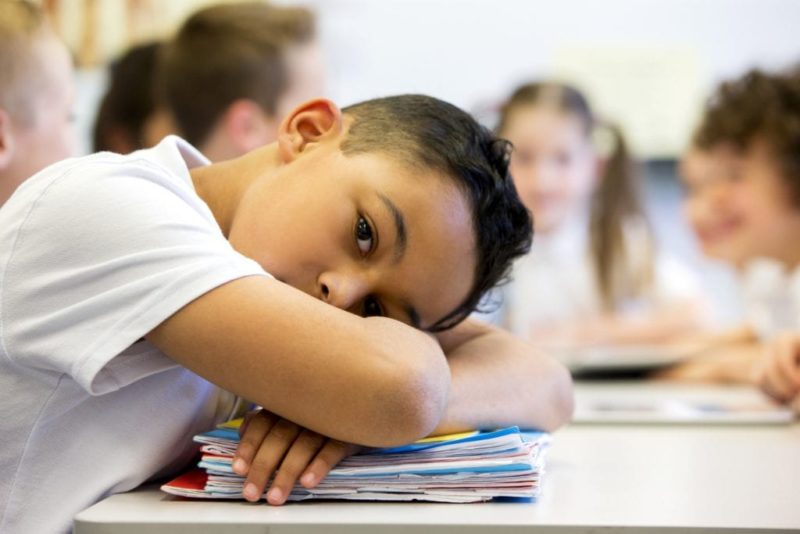There are lots of different opinions when it comes to repeating a year at school. Here, we share our insights from the latest research and our perspective as clinical paediatric practitioners. (And a warning: the results may surprise you!)
If your child has struggled a lot at school this year, you may be wondering whether they should repeat. If so, it’s natural to have lots of questions:
How will repeating affect them?
Will they be socially isolated or embarrassed?
If they need to repeat, when is the best year to do so?
Will it really make that much of a difference?
Are there alternatives?
In the past, repeating a grade was more popular and was typically suggested if a child was viewed as underachieving or unable to cope due to various factors such as social immaturity, long-term absences, long-term illnesses, behavioural or emotional challenges. However, research is questioning whether repeating truly helps children.
Limited effectiveness of repeating
Substantial research has been conducted into the academic and psychosocial effects of school repetition on children over the past few decades. It has shown the overall benefits of repeating are minimal at best. Additionally, studies have found no substantial long-term differences in either academic or social progress in children who repeated and those who didn’t, but could have (McGrath, 2006).
In fact, for the majority of kids who repeat, they will never ‘catch-up’ in an academic sense and although they may demonstrate some progress within the repeated year, these improvements are not sustained and are generally lost within the next three years (Pagani et al., 2001).
Potential negative impacts of repeating
Research has also shown children who have repeated have poorer mental health and social outcomes than their peers (Andrew, 2014). This is largely due to them feeling a sense of failure or disappointment as a result of being held back from their classmates, as well as the increased pressure to integrate into a new peer group (either a new class or school).
Simultaneously, a large number of children who have repeated also demonstrate other negative outcomes including: a higher rate of ongoing behavioural problems, an increased negative attitude towards school and educational systems, a higher likelihood of not completing Year 12, and a decreased willingness to undertake tertiary education (Pagani et al., 2001) (McGrath, 2006) (Alexander et al., 2001).
What to do if your child is going to repeat
Repeating is not something schools typically do lightly and there are many considerations that your child’s school will discuss with you. However, if this is the best option for your child, here are some things we recommend keeping in mind:
- The earlier the better: Research has found that children who repeated later within their schooling (Year 5 or above) showed poorer outcomes than those who repeated earlier (Andrew, 2014) (Pagani et al., 2001).
- Advice from your child’s practitioners: It’s helpful to ask anyone else involved in your child’s development for their professional opinion. This could include their occupational therapist, speech pathologist, paediatrician and/or psychologist, as well as your family GP.
- Importance of the school counsellor: In addition to social and emotional support, your child’s school counsellor can provide referrals for any academic, social, behavioural and emotional diagnostic testing required.
- Open communication: An ongoing dialogue between you, your child, their teacher, school counsellor and principal is important to ensure the best possible outcome for your child.
There are alternatives to repeating
While a small percentage of children benefit from repeating, current research suggests it isn’t the most effective way to assist a child’s development. So, if your child is struggling, it may be better to first explore other intervention strategies as alternatives to repeating.
The best course of action will be different for each child, so your child’s OT can advise on and help in creating an achievable plan to support your child’s development.
If you have any questions about repeating your child, please talk to your child’s OT or contact us to discuss your child’s development with us.
Alexander, K., Entwisle, D., & Kabbani, N. (2001). The Dropout Process in Life Course Perspective: Early Risk Factors at Home and School. Teachers College Record, 103(5), 760-822. http://dx.doi.org/10.1111/0161-4681.00134
Andrew, M. (2014). The Scarring Effects of Primary-Grade Retention? A Study of Cumulative Advantage in the Educational Career. Social Forces, 93(2), 653-685. http://dx.doi.org/10.1093/sf/sou074
McGrath, H. (2006). To Repeat or Not to Repeat?. WORDS: Journal Of Western Australian Primary Principals’ Association. http://wandinyallockps.vic.edu.au/app/webroot/uploaded_files/media/torepeatornottorepeat.pdf
Pagani, L., Tremblay, R., Vitaro, F., Boulerice, B., & McDuff, P. (2001). Effects of grade retention on academic performance and behavioral development. Development and Psychopathology, 13(2), 297-315. http://dx.doi.org/10.1017/s0954579401002061


